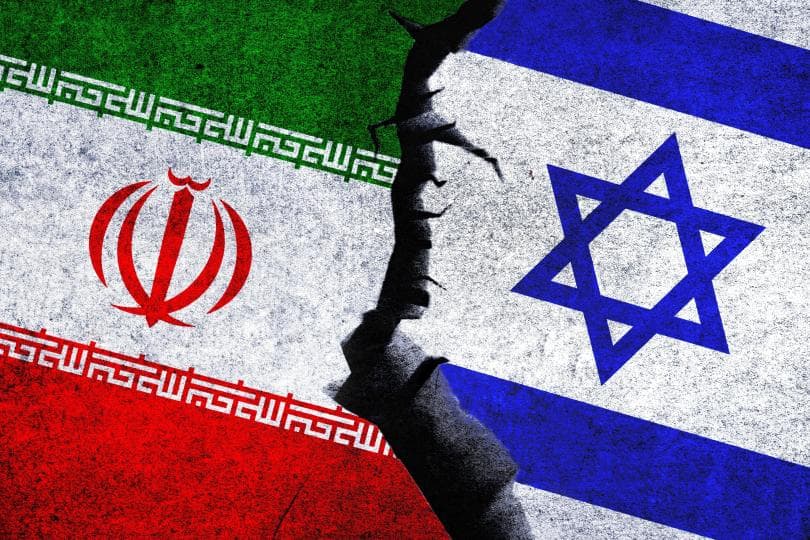Israel-Iran Conflict Intensifies?

The Israel-Iran conflict has entered a perilous phase with the former's strike on the Iranian embassy in Syria, igniting a chain of events that has seized global attention.
On April 1st, Israeli aircraft (F-35 fighter jets) targeted an Iranian consulate building on a highway in the western Mezzeh district of Damascus, killing 8 people including a senior commander of the elite Quds Force, 2 Iranian advisors, and 5 members of the IRGC, a designated terrorist organisation by the US State Department.
In an act of reprisal, Iran attacked Israel during the overnight hours of April 13, launching around 330 UAVs and missiles towards Israel. Tehran’s retaliatory attack included 185 UAVs, 30 cruise missiles, and over 120 ballistic missiles. According to the IDF, Israel intercepted around 99% of these aerial targets with its robust air defence - the Iron Dome and “Arrow” system. Its strategic allies - the US, UK, France - along with some countries in the region such as Jordan and Saudi Arabia collaborated to nullify Iran’s attack.
Reaffirming America’s ironclad commitment to Israel's security, President Joe Biden proclaimed that the American forces at its air bases across the Middle East helped Israel shoot down all the missiles launched by Iran. Leveraging the G7 grouping, Biden also warned Iran of a united diplomatic response to its brazen attack. The UK Defence Ministry also asserted the deployment of its RAF jets in Iraq and Syria to intercept any potential airborne attacks within the range of its existing missions.
On April 19, Iran witnessed a drone attack (limited military strike), targeting a major air base and the Natanz uranium site in its central province of Isfahan. This strike is reckoned to be part of Israel’s retaliation against Iran’s previous attack. Consequently, flights were suspended in the cities of Tehran, Isfahan, and Shiraz. However, neither the Iranian foreign ministry alleged Israel’s involvement in the strike nor did Israel officially claim responsibility for it.
The recent airstrikes targeting the Iranian-backed Popular Mobilization Forces (PMF) command post at Kalso military base in Eastern Iraq (South of Baghdad) have escalated tensions beyond Iran and Israel's borders. Resulting in the death of 1 PMF fighter and wounding 6 others, the attack sparked concerns of a wider conflict. While the source remains unidentified, both Israeli officials and the U.S. Central Command confirmed involvement.
Amid escalating hostilities, India's External Affairs Minister, S. Jaishankar, proactively engaged with counterparts from Iran and Israel. Stressing diplomacy, Jaishankar urged restraint and de-escalation in talks with Iranian FM Amir-Abdollahian and Israeli FM Katz. India's Ministry of External Affairs emphasised its grave concerns, advocating for immediate de-escalation and a return to diplomacy. This proactive stance showcases India's commitment to ensuring peace and stability in the region.
The coming days will test diplomatic resilience and the resolve of nations to seek peaceful resolutions amid complex geopolitical challenges.


































